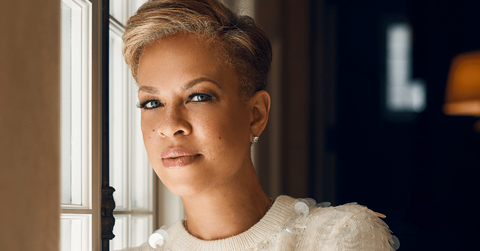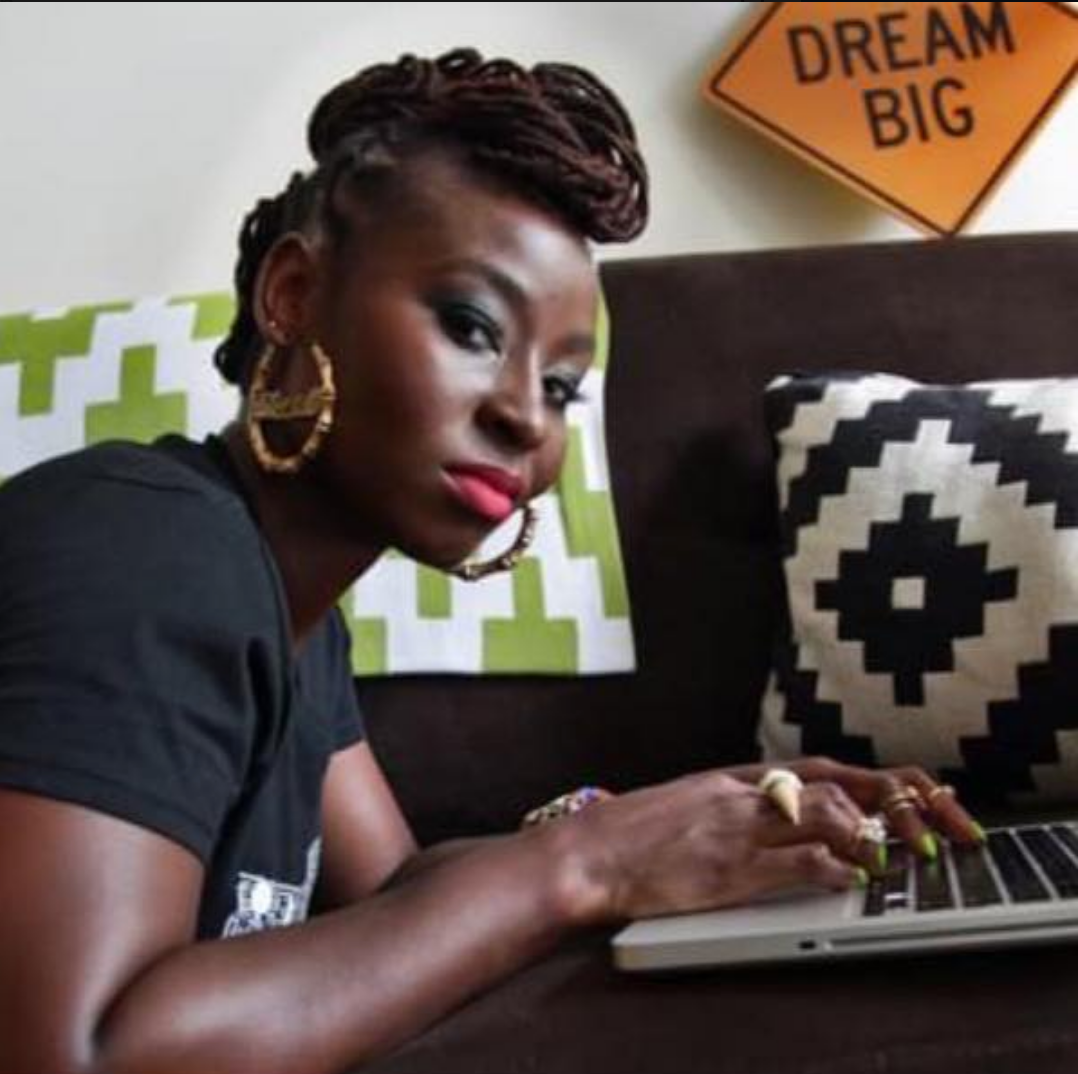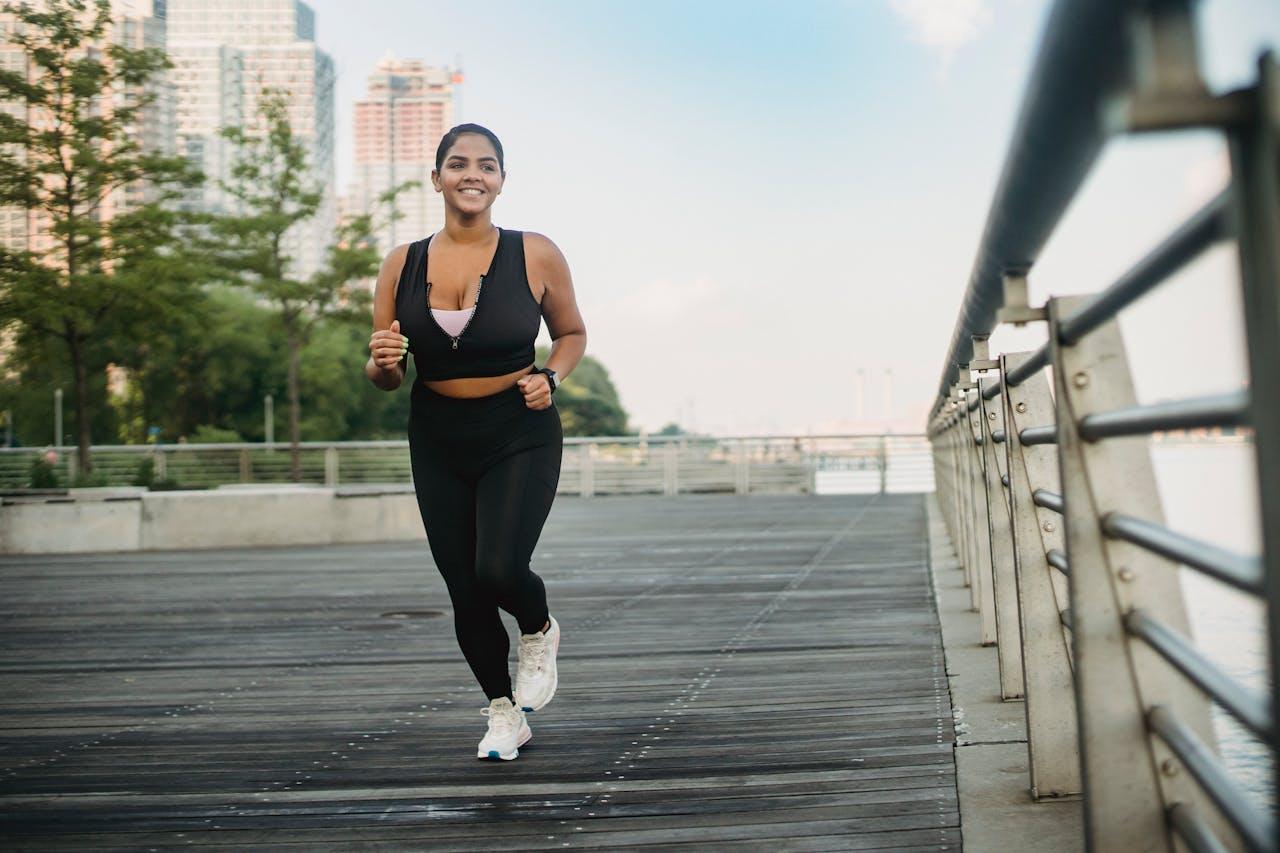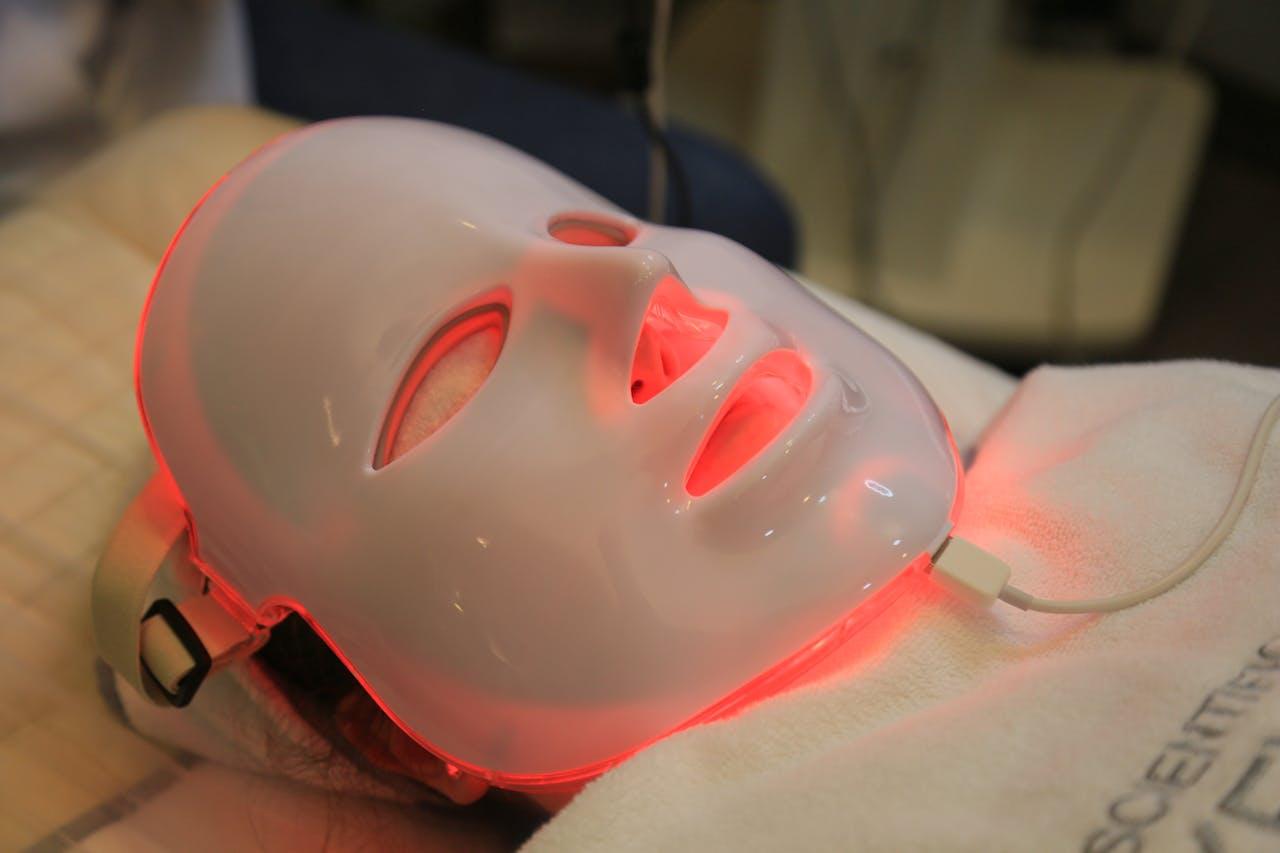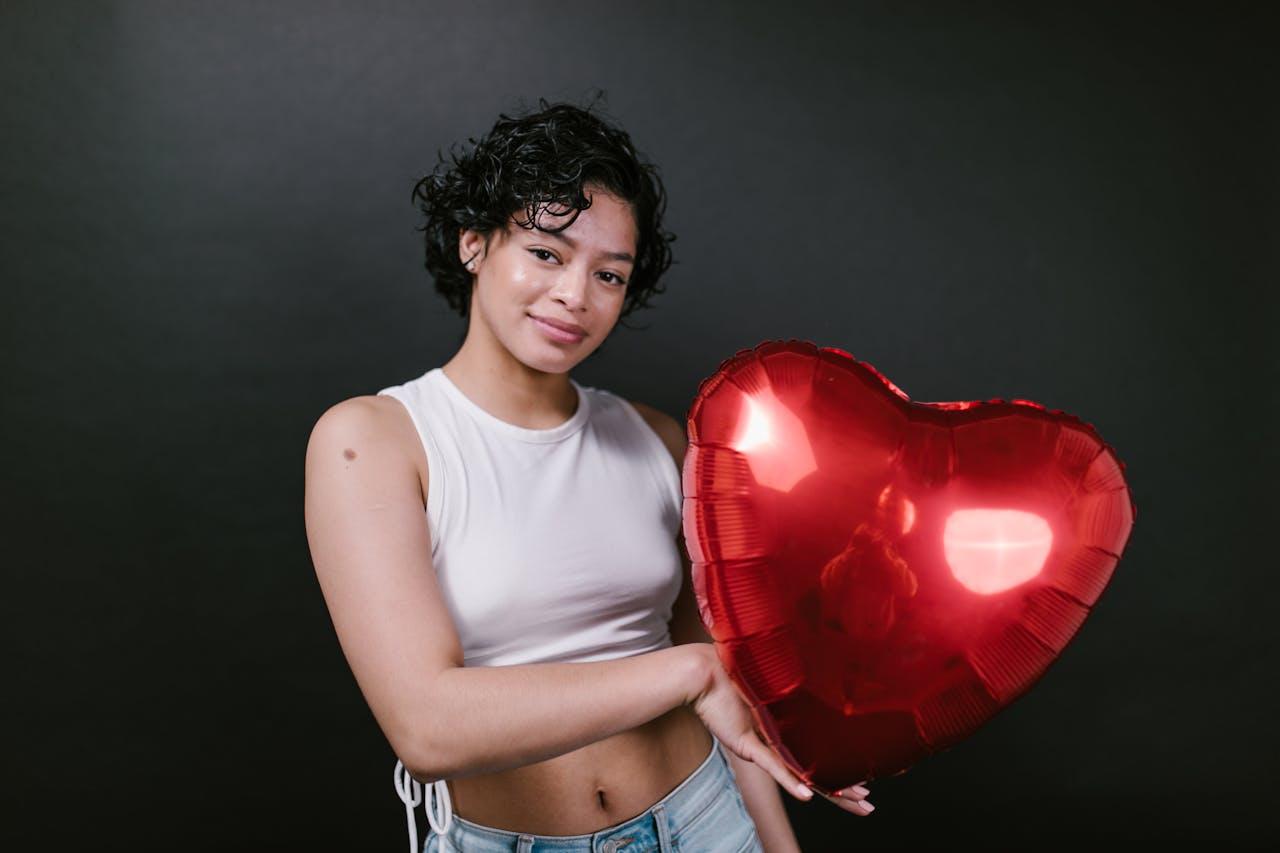Tonya Lewis Lee is a multi-hyphenate entrepreneur with a variety of projects under her belt. She is a mother of two, wife, activist, author, filmmaker, and more, but the core of her life’s work is health and wellness, especially with regard to women. Her latest film, Aftershock, available on Hulu, delves into the heartbreaking Black maternal health crisis. It takes viewers on a complex journey through the factors that led to the crisis, families who have lost their loved ones but didn’t have to, and how we can find some solutions to this devastating epidemic.
Her Agenda had a conversation with Lewis Lee to discuss her new film and her commitment to health and wellness.
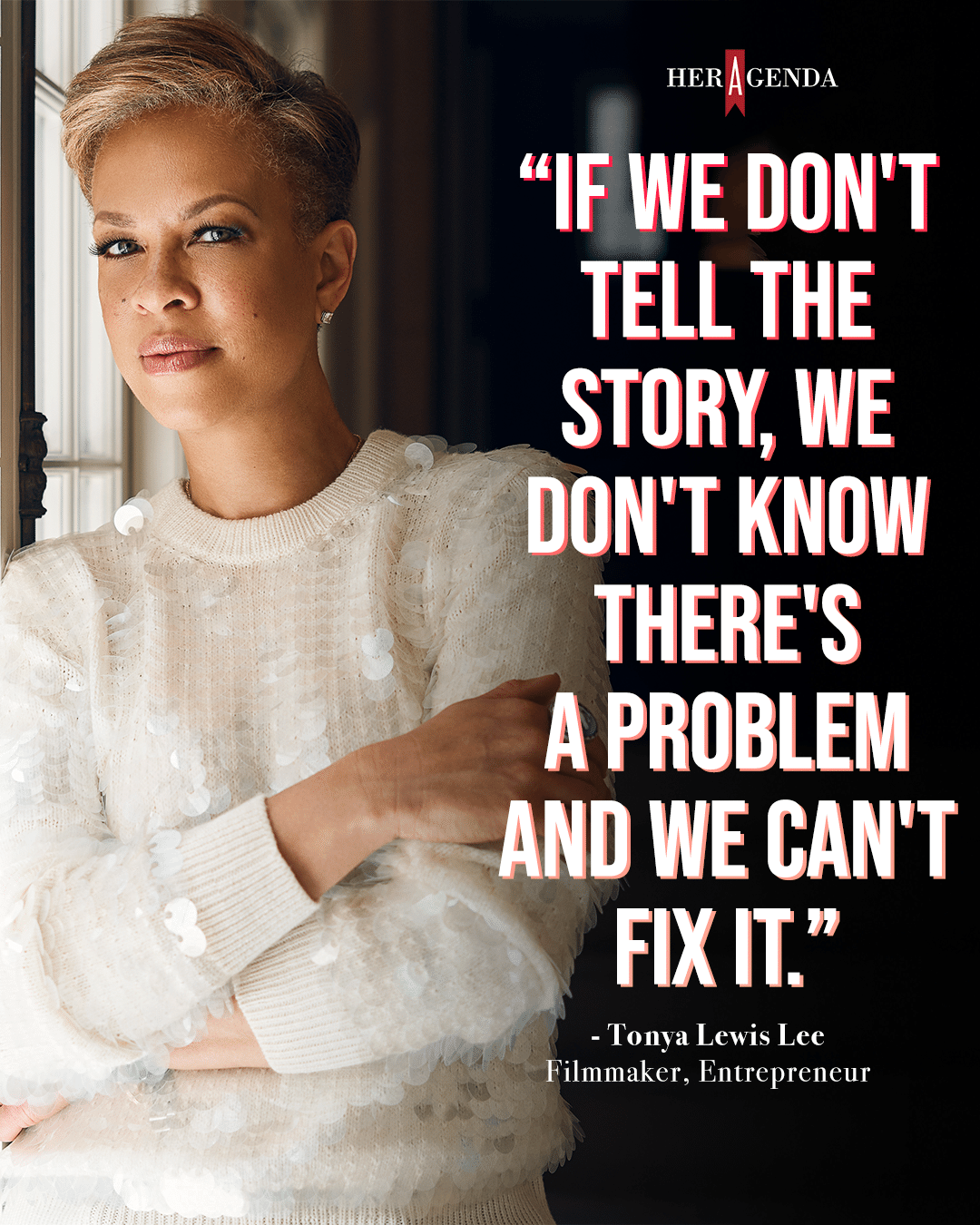
Her Agenda:Tell me about Aftershock, and how your experiences as a mom and your commitment to health and wellness have led to you creating this film.
Tonya Lewis Lee: I’m a Black woman. I love Black people, my community, and really my journey to this film started, back in 2007 when I was the spokesperson for an infant mortality awareness-raising campaign. I had traveled the country for 10 years talking to groups of women about what does it mean to be healthy? How do we access our healthiest lives for the sake of our children and our families? We were focusing on the disparities and inevitably someone would tell me a story about someone who had passed away from childbirth complications. And you keep hearing it again and again. And then around 2018, there were articles that were coming out about this epidemic that’s happening.
So, I really wanted to tell the story because we need to talk about these issues in order to fix them. Sometimes we are afraid to talk about them because we think it’ll scare people, or we don’t want to [usher] in trauma storytelling, but if we don’t tell the story, we don’t know there’s a problem and we can’t fix it. So for me, Aftershock is really about having a conversation around maternal health, around Black maternal health and the solutions to make it better so we can have better birthing outcomes in this country.
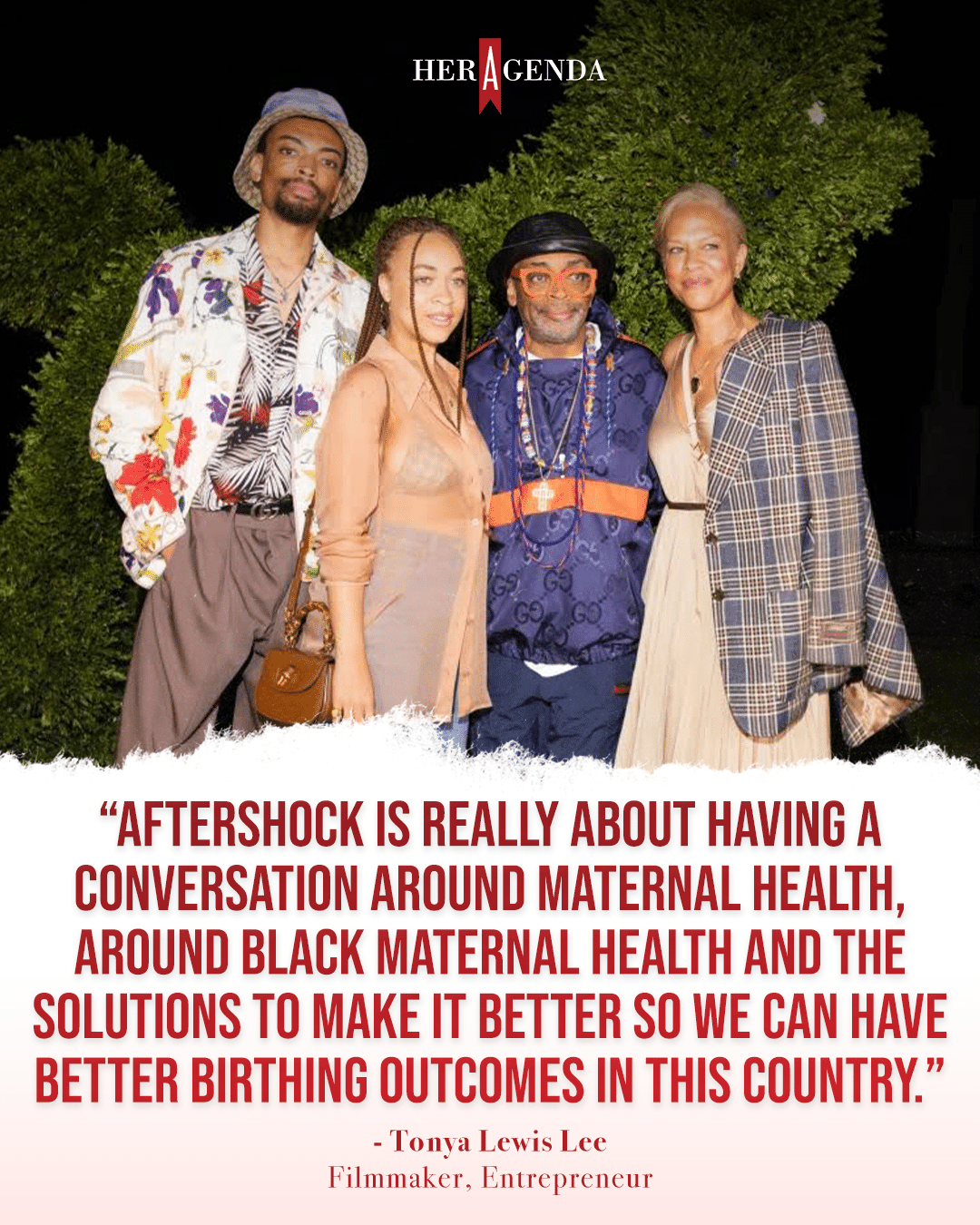
Her Agenda And I know there are a lot of layers as to why this is such a problem. There are policies that affect Medicaid expansion, and then having a baby myself, just the way insurance operates. For example, I wanted to give birth at a birthing center, but my insurance wouldn’t pay for it. And then there’s racism and bias, but all of these systems intersect.
Tonya Lewis Lee: Yeah, you’re saying it all, but I appreciate you bringing up the Medicaid and Medicaid expansion because I think that’s really important. People don’t understand that a lot of these deaths happen postpartum. So women really need to have insurance coverage for a year postpartum. A lot of times they’re kicked off immediately, which is when they’re most vulnerable. So, I think we need to understand that pregnancy, and birthing, don’t just stop once the baby gets here. We need to pay attention to women postpartum. We should not be waiting six weeks for a woman to be seen again by a doctor postpartum. She needs to be seen more often.
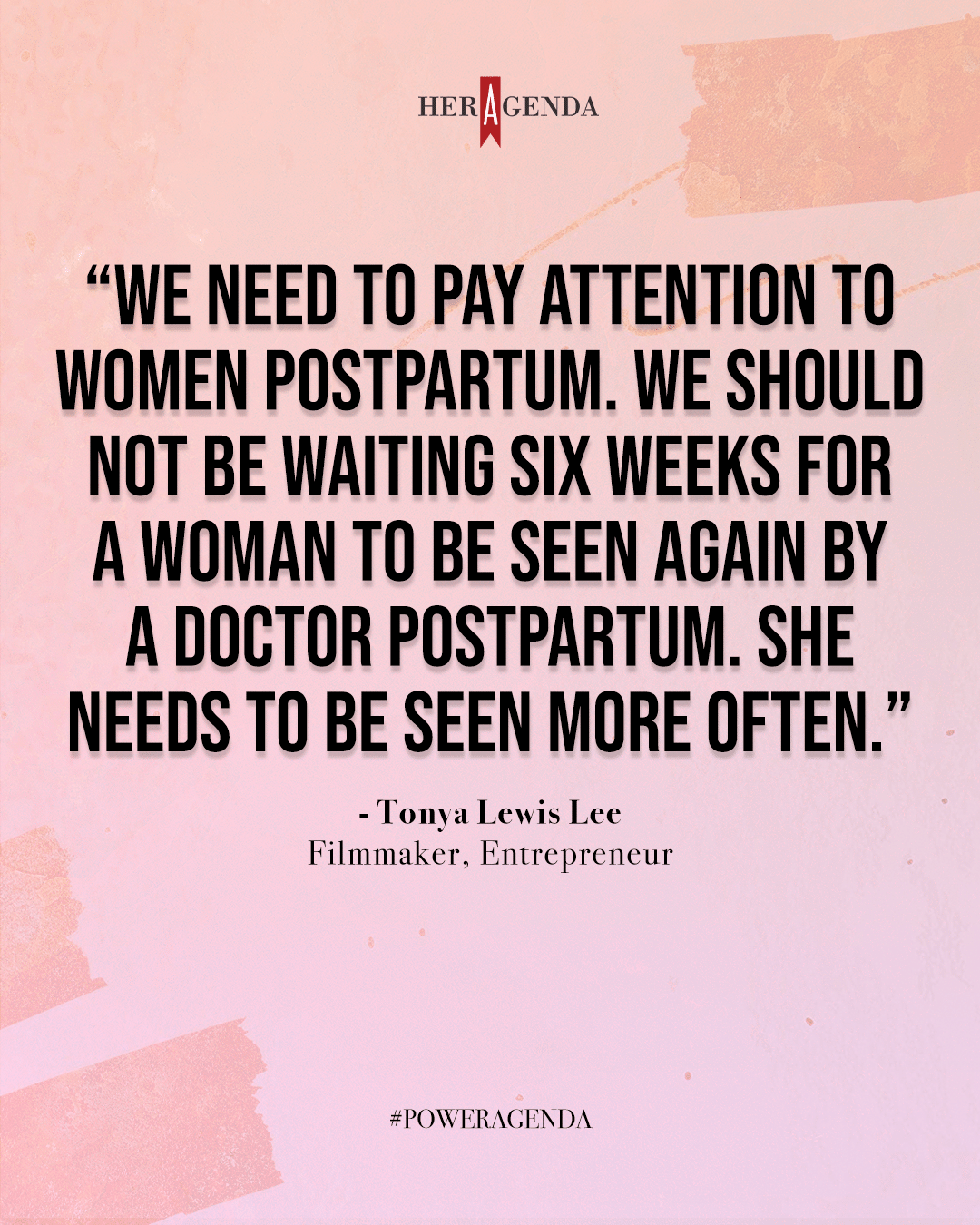
The United States is the only developed nation in the world that does not have midwives integrated into our healthcare system, which goes to what you were talking about the birthing centers, because our system was really, historically, and we talk about this in the film, the economy of midwifery was taken away from women, Black women, and put into the hands of doctors and hospitals to drive us all there. And then there was a campaign launched against midwives saying they were witches, they’re dirty, to scare us all from going to midwives so we’d go into the hands of doctors and hospitals. And that campaign, we are still dealing with that today. So people are still afraid of birthing centers. I mean, I’ve spoken to doctors about birthing centers when they were like, ‘Oh, my God, that’s the worst thing!’ I mean, it’s just fear-mongering.
Her Agenda: Right! They’re like Bloods and Crips, the doctors versus midwives.
Tonya Lewis Lee: It’s true, and that’s to our detriment. We are really suffering for that. So, I will say, the good news is that there is becoming an awareness that it’s not the woman’s fault because that has been the narrative historically, right? And I think there is now an understanding, ‘Oh, no, that’s not the issue. The issue really is that the system doesn’t really want to deal with us.’
The system doesn’t listen when we say we are not well. ‘I don’t feel well.’ ‘Oh, sure, you do. You don’t know. Just lie down, you’ll feel better.’ ‘No, I know my body and I’m telling you, I don’t feel right, so you need to listen to me.’ And I have to tell you, that’s one of the biggest issues we have heard across the board, that women are not seen and they’re not heard. And so when they do go for help, they don’t get the help that they need.
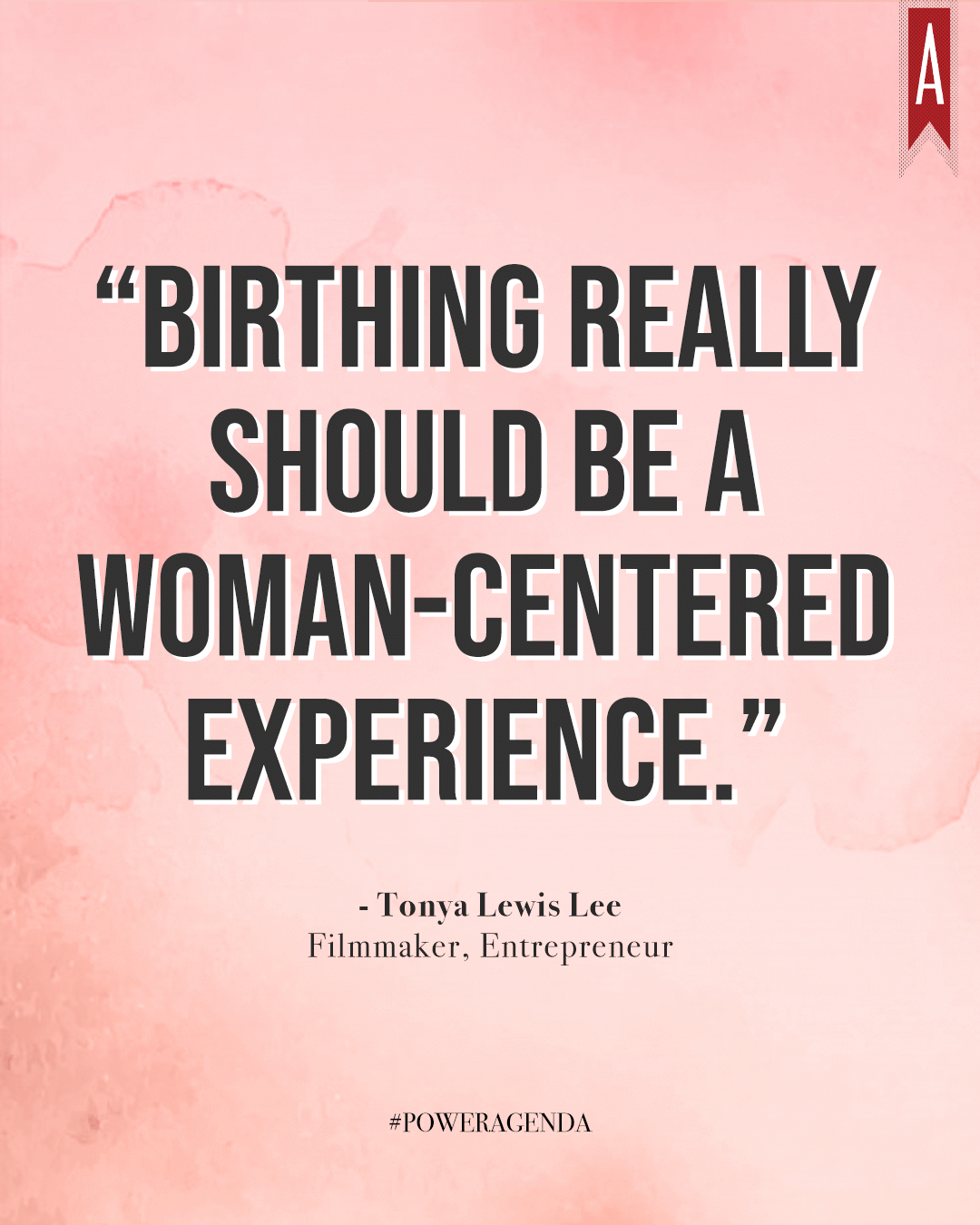
Her Agenda: And I know the United States is bad with maternal health across the board for all women. And of course, the trickle-down definitely affects Black women and women of color more so. So if it’s bad for white women, then you can imagine.
Tonya Lewis Lee: Exactly, then you know it’s bad. And I’ll tell you, that’s a tricky thing, too, because I think for white women, they’re under an impression because we talk about the inequity and the disparity. ‘Oh, Black women are dying at three to four times the rate of white women,’ but white women, compared to your European sisters, you’re not doing so well yourselves. So you need to pay attention to what’s going on with us, right? We’re the canaries in the coal mine. It’s going to get worse for you if we’re not taken care of.
Her Agenda: I know you have a long history of being an advocate for health and wellness in general, but what are some things that you may have learned in the process of making this film?
Tonya Lewis Lee: I learned a lot. I have a 27-year-old and a 25-year-old. And so when I was giving birth, I didn’t really know about midwives. They were very mysterious to me. I didn’t really know about doulas. Nowadays, doulas are more well-known. And so, I learned about those aspects of birthing. So, I tease my daughter. I’m like, ‘Okay, so now that we know, we’re going to do this. We’re going to do that.’ And I’m like, ‘No, no, of course, it’ll be your way.’ But I realized that birthing really should be a woman-centered experience.
The birthing person should decide who she wants around her when she’s birthing, and what the environment is that she wants. It doesn’t have to be a hospital. If she wants it to be a hospital, it should be. But like you said, it could be a birthing center. It could be at home. It’s really an individualized situation so that she feels safe and dignified to do the work that she needs to do. And I’ll tell you the other thing I learned, too. Following Shawnee Benton-Gibson, Omari Maynard, and Bruce McIntyre who lost Shamony Gibson and Amber Rose Isaac, I learned the power of eternal love. These families loved Shamony and Amber. They were obviously loving, beautiful women and they shine through in the work that their families continue to do to honor their legacies. And it has been beautiful to watch them and to see what that grief is really about love and how you can turn that grief into action has been amazing.
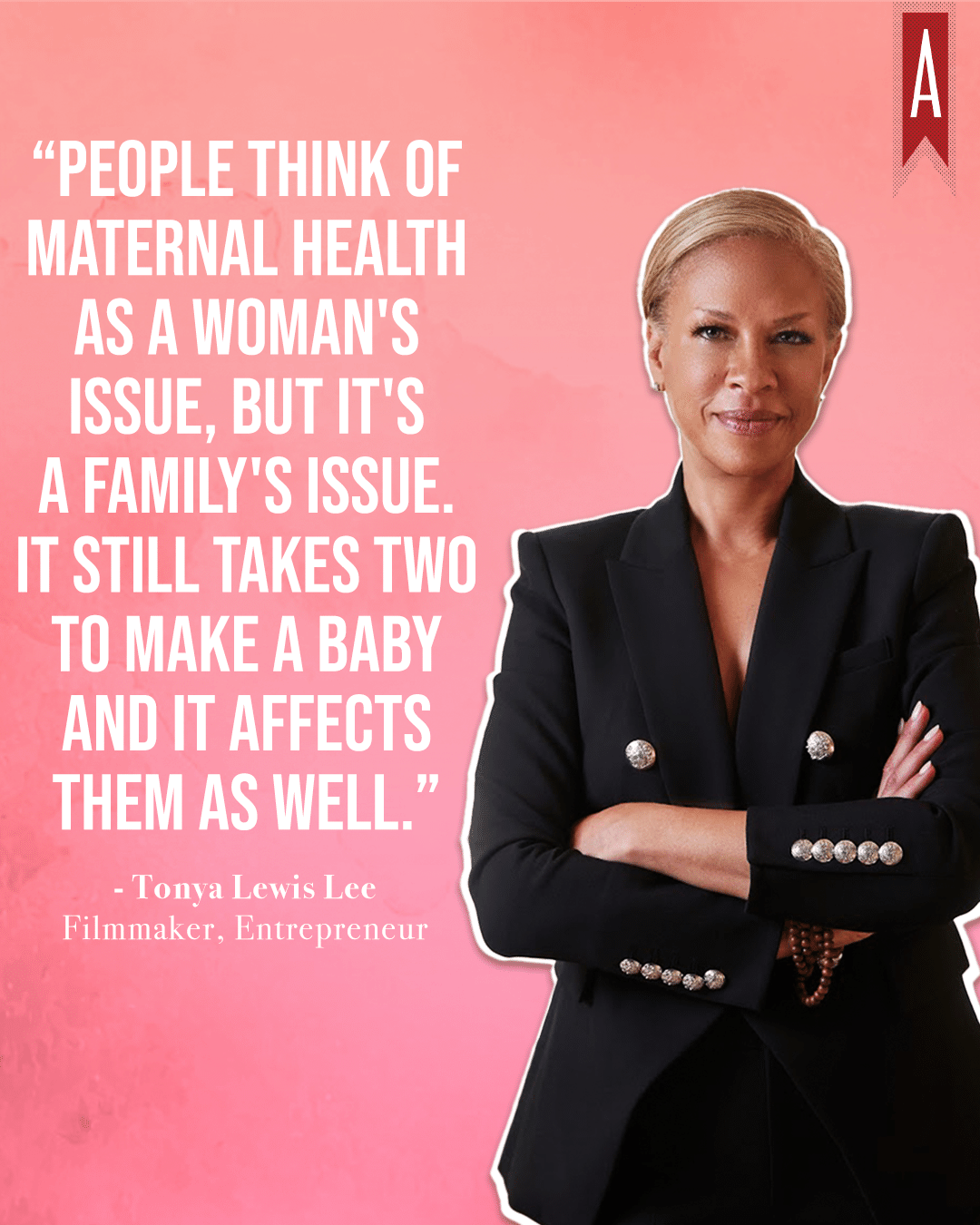
Her Agenda: I love that you featured their partners, and in a lot of the cases the partners have become activists. Talk about the importance of highlighting the partner and what these women have left behind.
Tonya Lewis Lee: Omari Mayard and Bruce McIntire are beautiful men who loved their partners and loved their children, and were devastated by the loss and had to pick up the pieces and raise their children. But they became activated because not only did they love their women, they love their community, and they really don’t want other people to experience what they experienced. I think people think of maternal health as a woman’s issue, but it’s a family’s issue. It still takes two to make a baby and it affects them as well.
I really appreciated that they allowed themselves to be vulnerable to each other and also vulnerable in the film so that we can see and understand what the process is like for them. And it’s also amazing to see the other men that they connect with who have lost. There is a brotherhood out there that no one wants to be a part of, and yet they’re there for each other and supporting each other, and holding each other up for the sake of our community. And it’s just a beautiful thing to watch.
Her Agenda: And what do you hope viewers take away from the film?
Tonya Lewis Lee: The thing that’s key to me is, I don’t want people to be afraid to give birth. I hope that when people leave the film, they feel empowered to make the choice of the type of birth they want to have. I feel, in this country, we fear-monger so much on everything, and I just hope that it can be like, ‘Okay, I know the experience is… It’s going to [take] work. It’s going to be labor. It’s called labor for a reason. But I can lean into that, find the right experience for myself, and have the best birth possible.’ I hope people come away from the film and see two beautiful women who should be here to raise their children. Amber Rose Isaac and Shamony Gibson, they should be here. They were beautiful women, but I hope they see what kind of a legacy they leave behind.
Her Agenda: That was just so heartbreaking, just watching the trailer.
Tonya Lewis Lee: And we all lose from that. We’re all connected, and whether we understand it or feel it directly, losing women, and losing our sisters like that, has an effect on all of us in our community. It does.
Her Agenda: And switching gears a bit, I know you have a vitamin company called Movita Organics, which still contributes to the conversation of women’s health. Talk about that.
Tonya Lewis Lee: There it is. That’s why I founded the company really, to continue the conversation about women, about how do we access our healthiest lives. It’s hard for everybody out here, no matter who you are, to try to live a healthy lifestyle in this United States way of being, right? And so, when I mentioned I did the infant mortality campaign traveling the country, talking to women about health and wellness, I also wanted to create a tool. It’s a tool in your toolbox. It’s a great product. You can take it on an empty stomach first thing in the morning, and then hopefully, making that one good choice will help you make better choices because I’m the first one to say, ‘No one pill’s gonna do it. It’s got to be a part of an overall lifestyle.’
And what does that look like? So, yes, I want to continue that conversation with women because I’m always trying to adjust and figure out what’s really right for me. What’s not. And again, I mean, there’s a lot that doctors don’t know, right? And I’ll just give this one example. I noticed that my cholesterol has been ticking up a little bit and I take a lot of pride because I try to work out all the time and try to eat right to keep my numbers in order. But my cholesterol is edging up, and my doctor was like, ‘Yeah, we should watch it. You should come back and do this and that.’ And then I started doing my own little research, my sister and I both, and we realized that women when you’re menopausal, your cholesterol goes up. Who knew?
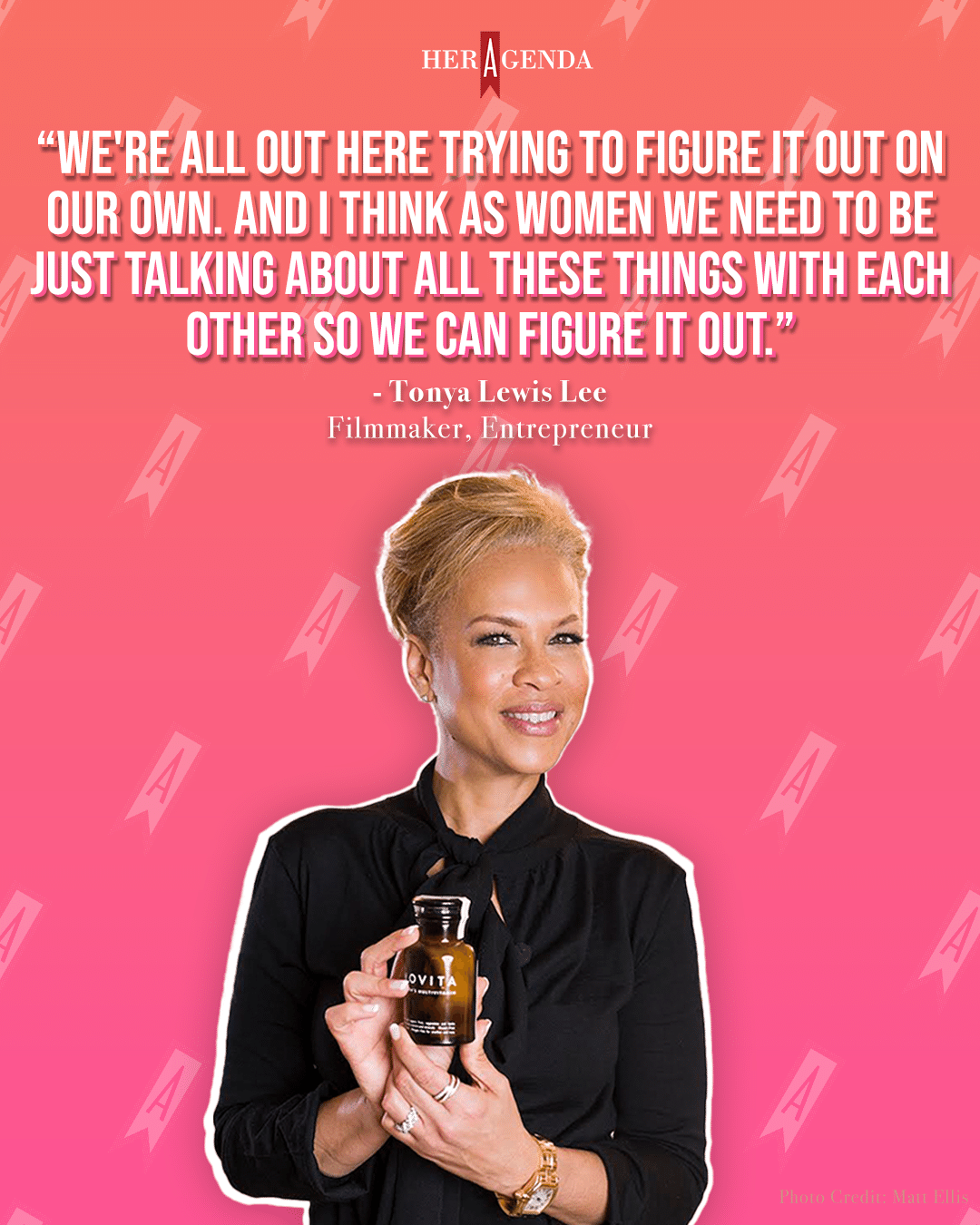
Her Agenda:Wow!
Tonya Lewis Lee: Where is my doctor explaining to me that like… [well let’s monitor and see.] [They] don’t know. But when you get to a certain age and things change, things change. And I love my doctor, but we’re not having that conversation. I’m doing that research on my own. And so I just say that to say that we’re all out here trying to figure it out on our own. And I think as women we need to be just talking about all these things with each other so we can figure it out.
Her Agenda: And, finally, I hate that I even have to ask this question, but with so much going on, the Roe v. Wade situation, we know that once they come for that then it’s only a matter of time for the next thing, right? So, what can women and birthing people and their supporters do to make sure that we retain and regain control of our bodies and the policies that affect us?
Tonya Lewis Lee: Vote. Don’t mess around. And I know there are a lot of people out there who are like, ‘It doesn’t really matter anymore. Who cares?’ It does matter. We have to vote. We need to make sure that there are good people who are running for office. I think that’s part of the issue, too. The really good people don’t really want to run because it’s so nasty out there, but we need to find great people who run for office, who make sure our laws stay in place, who have got some sort of moral compass. And get out there and vote and do the work. And find whatever, however you play your role, you’ve got to do the work. For me as an artist, it’s like, ‘Okay, I made this film thinking about, what am I going to shine the light on next? How am I going to play my part?’ I have a little bit of a platform and a voice, so I get out there and talk about health, because I know that’s really important, but I think the politics of the land really do matter. We can’t give up on that. Voting really does matter, especially in local elections.
[Editor’s note: This interview has been edited for length and clarity.]

